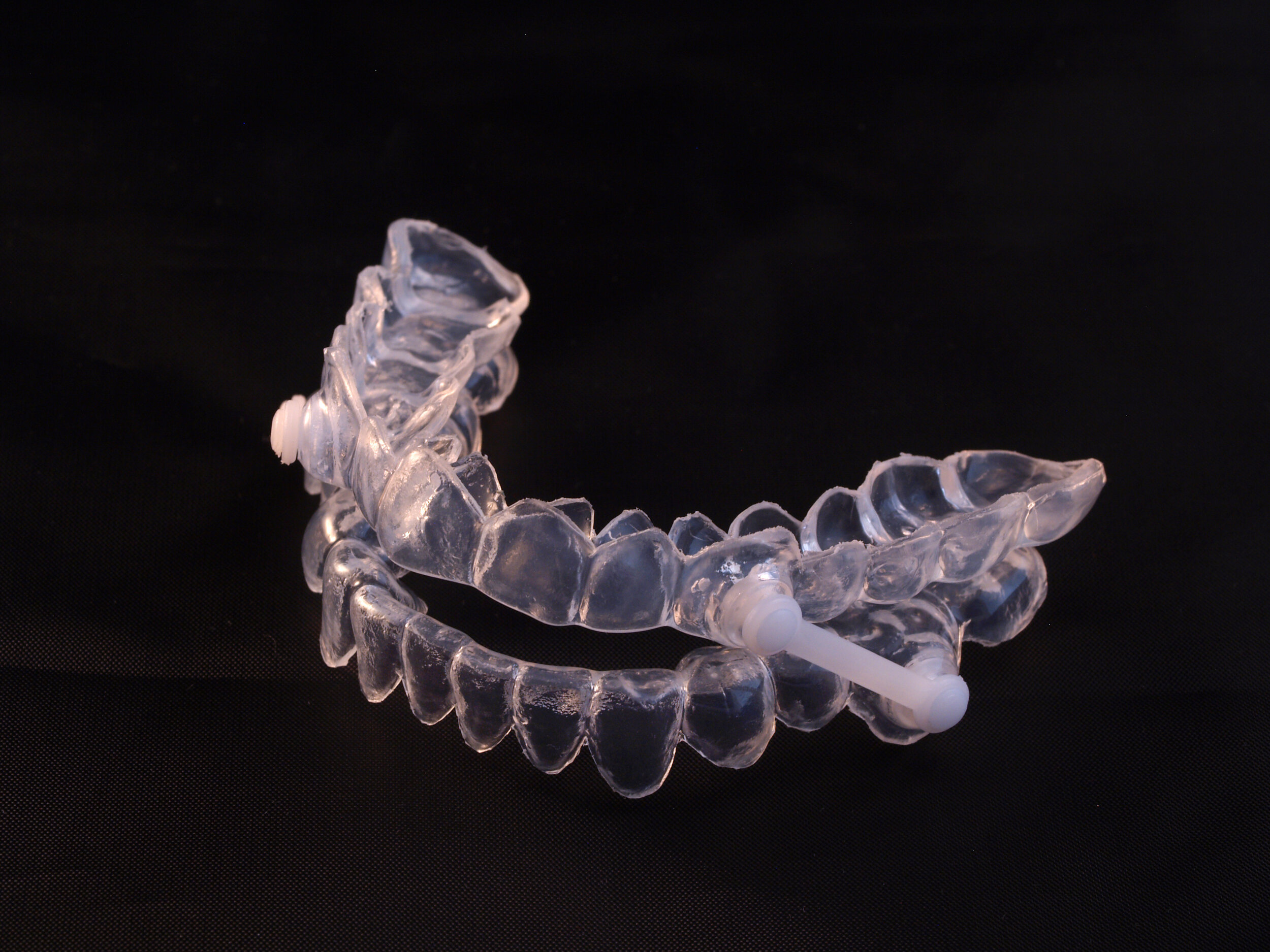
Dental Sleep Medicine & Oral Appliance Therapy for Snoring & Sleep Apnea
Sleep Apnea
Are you suffering from snoring, gasping for air at night, or experiencing excessive daytime sleepiness? These could be signs of sleep-disordered breathing, such as snoring or obstructive sleep apnea (OSA). Left untreated, these conditions can lead to serious health problems.
At Midwest BioHealth in , we offer dental sleep medicine solutions to help you breathe better and sleep soundly.
What is Dental Sleep Medicine?
Dental sleep medicine is a specialized field focusing on treating sleep-related breathing disorders. We offer custom oral appliance therapy, a proven alternative to CPAP for many patients.
How Oral Appliances Work for Snoring & Sleep Apnea:
Oral appliances are comfortable, custom-fitted devices worn during sleep. They gently reposition your jaw and tongue, keeping your airway open and preventing the tissues in the back of your throat from collapsing. This allows for unobstructed breathing and better sleep quality.
Benefits of Oral Appliance Therapy:
Effective: Proven to be effective for snoring and mild to moderate sleep apnea.
Comfortable: Easy to wear and adjust to, unlike bulky CPAP machines.
Convenient: Portable and discreet, perfect for travel.
Non-Invasive: No surgery or other invasive procedures required.
Reversible: You can stop using the appliance at any time.
Who is a Candidate for Oral Appliance Therapy?
If you experience any of the following, you may be a good candidate:
Loud snoring
Gasping or choking during sleep
Excessive daytime sleepiness
Morning headaches
Irritability
Difficulty concentrating
Why Choose Midwest BioHealth?
Our experienced dental team will work closely with your physician to diagnose and treat your sleep-related breathing disorder. We'll create a custom oral appliance specifically tailored to your needs and provide ongoing care to ensure its effectiveness.
Don't let snoring or sleep apnea rob you of a good night's rest. Contact Midwest BioHealth today to schedule a consultation and discover how oral appliance therapy can improve your sleep and overall health.
Upper Airway Surgery
See The American Academy of Dental
Sleep Medicine
More complex surgical procedures can reposition the anatomic structure of your mouth and facial bones. Dr. Johnson only refers to Oral and maxillofacial Surgeons who understand the full scope of this complex surgery.
G. William Arnett, DDS, FACD and Michael J. Gunson, DDS, MD or surgeons who have been trained by them and who have adopted their philosophy, are where I would get an evaluation if I was considering a surgical option for sleep apnea.
